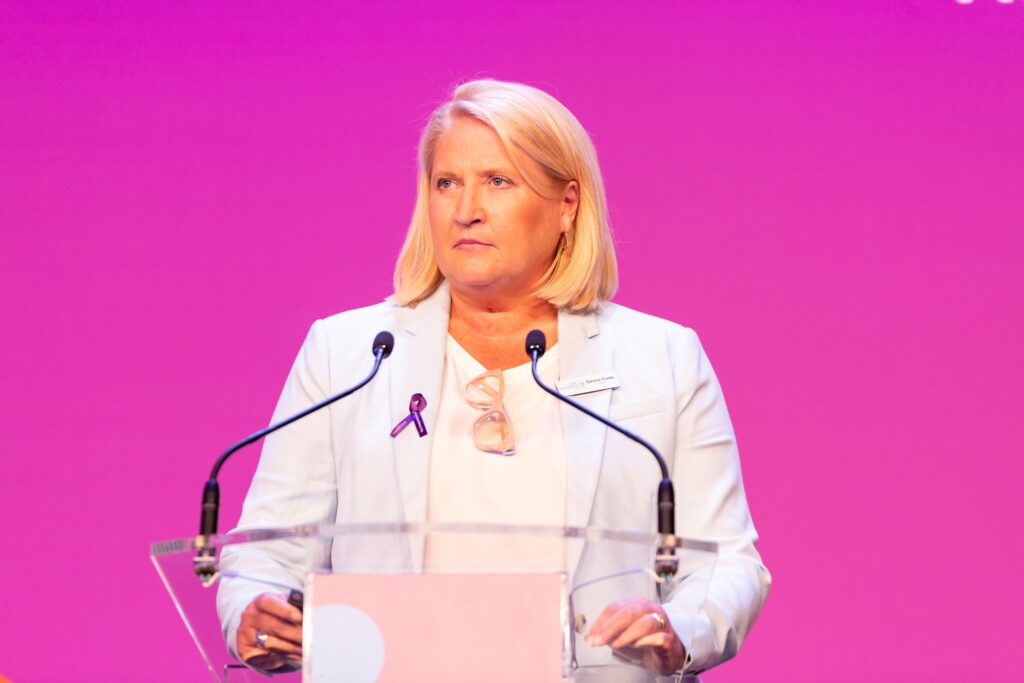As we approach International Women’s Day on 8 March it’s a moment to reflect on the importance of economic empowerment and inclusion for women and girls globally, and in Australia.
The UN theme for International Women’s Day in 2024 focuses our attention on the importance of investing in women, and the valuable return on that investment for all of us.
When women are empowered to have their own voice, agency, and full participation in economic decision-making, everyone benefits.
Around 2.4 billion women of working age are denied equal economic opportunities globally, perpetuating cycles of poverty and exploitation. And nearly one in three adolescent girls from the poorest households worldwide has never been to school.
The COVID pandemic, geopolitical conflicts, climate disasters, and economic turmoil have pushed more and more people into severe poverty, and by 2030 more than 342 million women and girls could be living below the poverty line.
With greater investment, progress is accelerated.
Inter-generational cycles of poverty are halted, workforce productivity is boosted and economies grow, families have greater food security, and women and girls can better manage their healthcare and reproductive choices, with resources available to leave violent and abusive situations.
In Australia, we boast some of the highest statistics on women’s education. Women outnumber men in higher educational outcomes, and yet this doesn’t translate into greater economic participation and leadership.
Australian women face a number of challenges in the workforce. Burden of care, unaffordable childcare, and pervasive gender stereotypes all contribute substantially to the gender pay gap, and at a staggering annual cost of $51.8 billion to our economy.
Financial literacy remains a pressing challenge, with twice the number of Australian women exhibiting low financial literacy compared to men. The result of this is staggering – nearly 10 percent of the differing wealth outcomes between men and women in Australia can be attributed just to this gender difference.
We also know that marginalised groups, including First Nations women, immigrants, refugees, and LGBTQI+ individuals, face compounded barriers to economic empowerment. These disparities are reflected in the statistics: Indigenous women experience higher rates of unemployment and lower levels of educational attainment compared to their non-Indigenous counterparts.
Women’s economic safety and security are also intrinsically linked to their physical safety and security. In Australia, one in six women experiences economic abuse by a partner, often a key mechanism of coercive control. The importance of financial independence in enabling women to escape abusive relationships cannot be overstated, and we must equip all women and girls with the skills and resources to ensure their financial and physical security.
Addressing these challenges requires a concerted effort targeting both structural and cultural drivers. We must bolster education, awareness, and understanding surrounding the legislative, behavioural, social, cultural, and economic factors perpetuating inequality.
We must invest in women by ensuring equal access to opportunities for skills development, entrepreneurship, and career advancement, as well as promoting women’s representation in leadership positions across all industries, as vital steps towards a truly inclusive, diverse, and equitable society.
Investing in women isn’t just the right thing to do; it’s the smart thing to do.
By investing in women and girls, we not only unlock their full potential but also create a more secure, equitable and prosperous society for all.
As we commemorate International Women’s Day, let’s double down our efforts to create a world where every woman is empowered to earn, learn, and lead. It’s time to Count Her In.
UN Women Australia’s International Women’s Day events are set to take place on March 8 in Sydney, Melbourne, Brisbane, Perth, and Canberra. The events will feature a national headline presentation from Michele Bullock, Governor of the Reserve Bank of Australia, as well as an inspiring line-up of live speakers on stage. A live virtual stream of all events will also be available, including a full IWD@Work package. For details and tickets, please visit iwd.net.au.
Feature Image: CEO of UN Women Australia, Simone Clarke.


